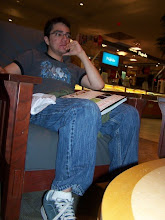
Stephen King's dedication at the beginning of Song of Susannah says, "For Tabby, who knew when it was done." If Tabitha King, Stephen King's wife, is responsible for the pacing and cliffhanger ending of Song, then I must say, "God bless you please, Mrs. King, Jesus loves you more than you will know. Oh oh oh."
There is so much right with the sixth book of The Dark Tower series. Many of the imperfections of the previous volumes (at least what I felt were imperfections) have been ditched here. This is just great storytelling.
It is one of the shortest books in the series (544 pages compared to the previous The Wolves of the Calla's 921), but it certainly doesn't feel too short. It escapes the long-windedness of some of the previous volumes. As a result, this book feels more like one story with one theme and central plot, unlike some of the others which were going in too many directions at once. And although the plot sidetracks us from the Dark Tower a little, it mainly functions to serve it. After all, all things serve the Tower. A quote, on page 12, summarizes this succinctness of this novel:
"Her eyes looked at him calmly. She still had hold of his left hand, touching it, culling out its secrets. 'Finish your business as soon as you can.'
'Is that your advice?'
'Aye, dearheart. Before your business finishes you.'"
I also love the way that the character who is the central focus of this story, Susannah, doesn't pop up for 60 pages or so. It is very much a detective story.
The action sequences in this book are just what I've been longing for in this series. There is a shootout with Eddie and Roland in Maine that involves a storefront and an overturned log truck that had me flipping to the next page almost before I finished the previous. This is the sort of high octane, Western inspired material I wanted but didn't get from Wolves and even Wizard and Glass.
King's explanation of how technology has become a poor replacement for magic, and the machines are failing, is something I think few other authors address. In this society, we assume magic and science are the same, but King asserts, much the same way I do, that they are far from the same. One is a weak imitation of the other that eventually runs down as mandated by the rules of Entropy.
If there's one criticism I have of the book, it's the scene in the hotel lobby full of Asian tourists described as having yellow skin, cameras, and King even notes they all look the same! The way they talk, as written in the dialog, is almost as uncomfortable as Mickey Rooney's role in Blake Edwards' Breakfast at Tiffany's starring Audrey Hepburn.
I admit, that those sort of 1960s stereotypes work sometimes, like Peter Sellers in Murder by Death, but not often. Often they're the sort of bad jokes a friend might declare loudly in front of a giant group of people, only to be met with dead silence. Who feels more awkward in that situation? You, or the friend?
There's a lot more of King working himself into the story, and I am still out on whether or not that actually works. I'll have to read the last book to know for sure.
This book ends with a cliffhanger much like The Waste Lands did. There's mention in Song about readers getting angry over the ending of Waste Lands, but I loved it, and I loved this ending. Maybe it's because I don't have to wait for the next volume. It's already been written; I just have to pick it up.
Bring on The Dark Tower!

